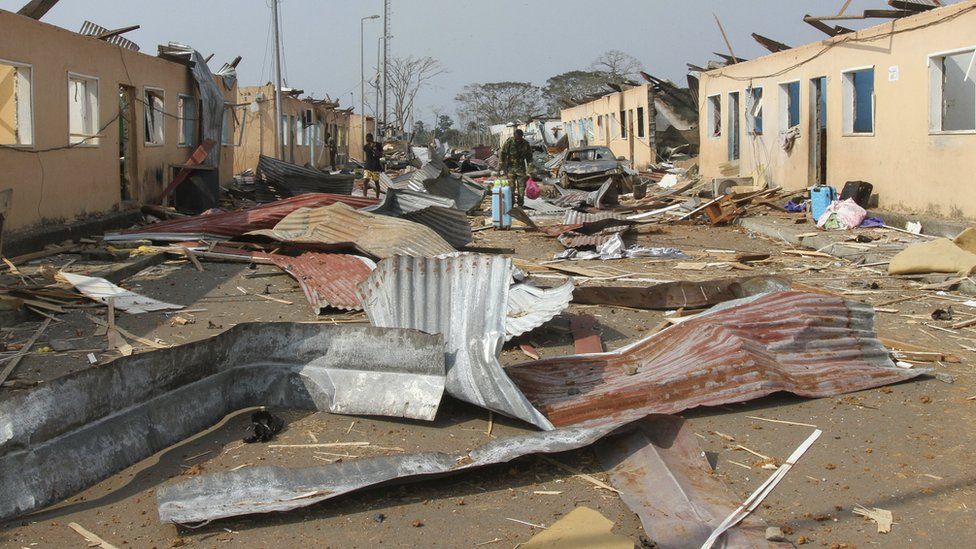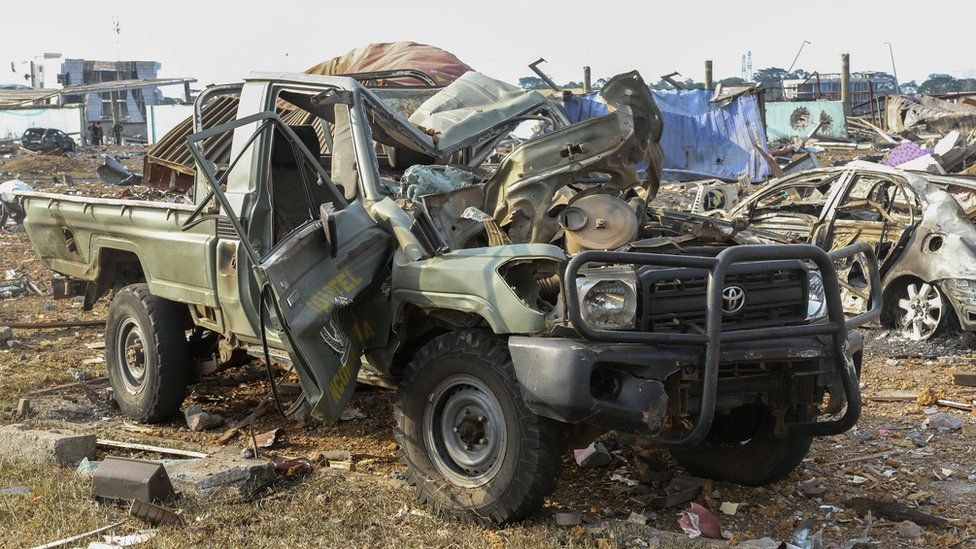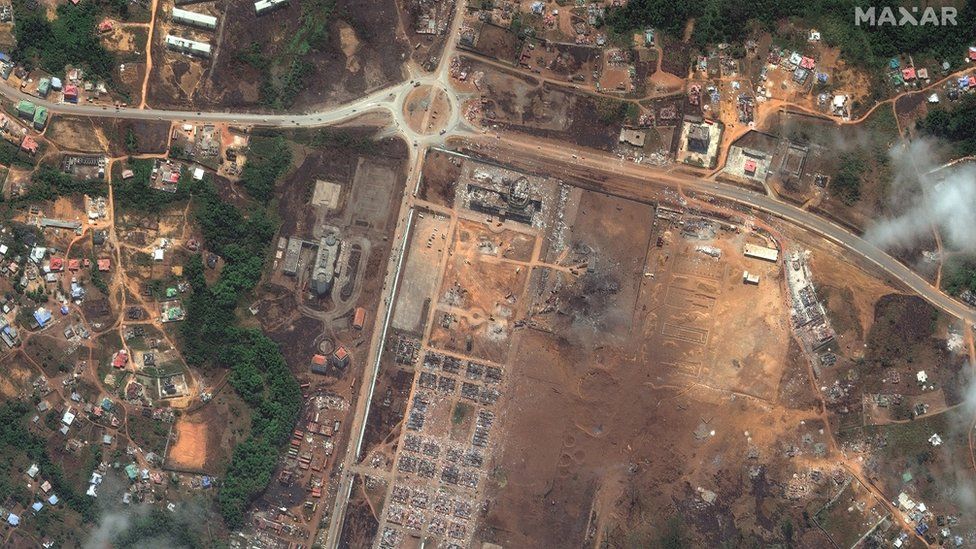Catastrophic Explosions in Daka, Equtorial Guinea
"There are many children without parents. In the long [term] what do we do with those children?""[The first explosion] was so big that all of us and the people around us were shouting: 'This is a bomb, this is a bomb!""People were crying, shouting, running, trying to stay somewhere, but it was panic.""We started to see police cars and firemen and people bleeding."Teacher (name withheld), Bata, Equatorial Guinea
In Dakar, Equatorial Guinea's largest city a series of explosions flattened the city earlier int h e week. Residents of Bata are unable to cope with the scale of the tragedy. At least 105 people were killed, with over 600 other people injured. Children frantically searched for t heir parents, missing since the explosions levelled the city.
 |
| Volunteers searched the rubble for bodies EPA |
Block after block of public housing in the coastal city were completely destroyed or close to collapse. Roofs and walls, the remnants of once-teeming homes for residents were scattered along the dirt roads in the neighbourhood. The explosions, states government authorities, were the result of fires farmers living near a military base set to burn their fields. It also places blame on the military for its careless handling of dynamite stocks guarded by the military.
Bata was declared a catastrophe zone leading the government to release millions for the response in clearing away the mountains of debris and begin building new shelters. Authorities in Daka have appealed to the international community for aid. A five-year-old girl was discovered in the rubble of a house in the military camp; a rare rescue.
 |
| EPA |
Firefighters continue their efforts, combing rubble searching for bodies. Onlookers stand nearby weeping. Appeals have gone out for donations of blood and basic goods. Refrigerated containers have been repurposed as morgues to store bodies until they can be buried. According to Alfredo Okenve, a human-rights activist living in European exile, he was informed the number of deaths to be between 150 and 200, quite a larger number than the official count of 105.
At the information ministry, Virgilio Seriche denied bodies were being stored in containers. Authorities, he said, were providing up-to-date numbers of confirmed deaths. The explosions which lasted for hours on Sunday traumatized Bata residents who remain fearful of additional blasts to occur at any time. Psychiatrists and psychologists were being deployed by the health ministry.
Spain forwarded a first batch of emergency aid, while the United Nations announced that the World Health Organization and UNICEF had mobilized teams for infection control and logistical support.
 |
| New satellite images reveal the extent of destruction in Equatorial Guinea's main city Bata following explosions at a munitions depot on Sunday. |
Labels: Aid, Daka, Destruction, Equatorial Guinea, Explosions

<< Home